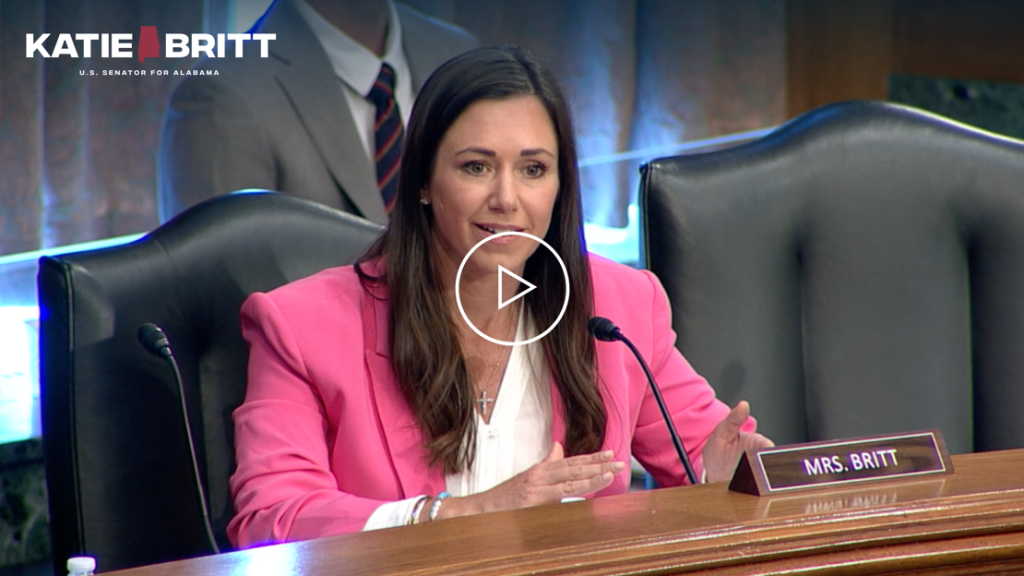U.S. Senator Katie Britt Highlights Need for Smart Digital Asset Regulation in Senate Banking Hearing
WASHINGTON, D.C. — U.S. Senator Katie Britt (R-Ala.) addressed digital assets in a Senate Banking Committee hearing, titled “From Wall Street to Web3: Building Tomorrow’s Digital Asset Markets.”
The Senator questioned two of the witnesses, including Blockchain Association CEO Summer Mersinger and Chainalysis CEO Jonathan Levin.

Senator Britt opened her remarks by emphasizing the importance of tailoring regulatory frameworks to meet the unique needs of digital assets: “We know, digital asset securities can share many characteristics with traditional securities, but they’re not inherently the same, and regulation needs to reflect that.”
She then cautioned against overregulation that could hinder innovation and small business growth, saying, “I’ve seen firsthand what happens to our small businesses and our small financial institutions when you have overregulation and it becomes unsustainable.”
Turning to Blockchain Association CEO Summer Mersinger, Senator Britt asked how lawmakers can adopt a flexible and adaptive framework, that establishes guardrails that offer clarity today without locking in outdated rules.
“We are dealing with a rapidly evolving industry here, and we can’t predict every change … How do we create a framework that puts up the proper guardrails and the clarity that we actually need today, without locking in rules that quickly become outdated?” the Senator asked.
Mersinger pointed to the Commodity Futures Trading Commission’s (CFTC) principles-based regulatory regime as a flexible approach that can adapt alongside innovation: “As technology changes, those companies, those startups, those small businesses can still operate…”
The Senator also raised the topic of regulatory sandboxes and their role in encouraging responsible innovation. Mersinger responded by emphasizing the importance of tools that regulate without stifling progress.
Senator Britt’s next line of questioning addressed concerns around digital asset anonymity, challenging the perception that crypto transactions are beyond the reach of law enforcement: “I have heard the narrative that digital asset transactions are completely anonymous and beyond the reach of law enforcement. I disagree with this.” Britt went on to note that, “Transactions on the blockchain offer a unique ability for tracing and tracking, including analyzing trends on the ledger.”
Chainalysis CEO Jonathan Levin explained how both forensic tools and blockchain transparency aid investigators in tracking illicit activity, saying, “The blockchain actually allows for a much more macro view of trends and threats that are persisting against society.”
Senator Britt concluded by highlighting her priority to empower state and local law enforcement with the tools they need to address related illicit activity and ransomware threats.
To view the full hearing, click here.
###